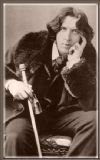|
ESL Forum:
Techniques and methods
in Language Teaching
Games, activities
and teaching ideas
Grammar and
Linguistics
Teaching material
Concerning
worksheets
Concerning
powerpoints
Concerning online
exercises
Make suggestions,
report errors
Ask for help
Message board
|
ESL forum >
Ask for help > Christopher Columbus
Christopher Columbus
|

mldl28

|
Christopher Columbus
|
|
Yesterday, I was about to give this lesson about Christopher Columbus when a student of mine started complaining ( but really complianing) about the name " Christopher Columbus" . What he said is that proper names shouldn �t be translated, something which I agree, so he wanted to know and, in fact, he demanded an explanation of why in the book we were using Colon �s name was in English. It took me by surprise because I �d never thought of it before, and on the spur of the moment, I didn � t know what to say.
I need you opinion because I �d like to give some kind of explanation to my student. What is your opinion? |
27 Aug 2009
|
|
|
|

barshu77

|
Christopher Columbus is not the only case in which this occurs. There are many other such as Henry, Edward, Charles, Jesus Christ, etc.
In my opinion this happens because these people are not just "people" and they are important to world history so each country decided to find the equivalent in its own language.
This doen �t occur with common people �s names.
I don �t really know how convincing my answer is but at least it �s something...
|
27 Aug 2009
|
|
|

carinaluc

|
|
Perhaps you should tell him / her that in fact "Crist�bal Col�n" is a Spanish version of this great man �s name, because his real one was Cristoforo Colombo. I �ve noticed that my students also complain about things that happen in the English language while we tend to do the same things!!!
Hugs
Carina |
27 Aug 2009
|
|
|

Zora

|
I agree with Carina �s idea. 
Also the "not translating proper names" idea hasn �t always been that way. If you look at old books EVERYTHING used to be translated. I have "root beer" translated in one book as "cerveza de jengibre" .. took me forever to get what they were getting at.... I was like "they make beer out of that? Where? I �ve never heard of such a thing.." - Til it dawned on me what the publisher had done... hahaha...
|
27 Aug 2009
|
|
|

arkel

|
|
I agree with Carina. Cristobal Col�n is a translation. I live in the part of Spain he left from and have seen his signature. Your student should google him to get the nanme he went by. |
27 Aug 2009
|
|
|

erika uy

|
|
We all agree, but it is not about opinions, as every languague English has its rules and if we happen to use names as we desire we won�t be teching English.
You can search for a explanation in books such as Michael Swan. greetings from uruguay |
27 Aug 2009
|
|
|

Jayho

|
|
Each language has its own sound system and when a word is imported from another language it is often seen as logical to adapt it to suit the sound system of the language into which it is borrowed. This makes it easier for the people in the �borrowed � language to understand it.
Think about news readers - if a Native English speaker had to pronounce Crist�bal Col�n correctly they probably wouldn �t be able to do it correctly: the vowel combinations and stress patterns in the original langauge might be totally different from English.
Cheers
Jayho |
28 Aug 2009
|
|
|